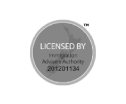Applying for an Australian visa? Chances are you’ll need a police clearance certificate (PCC), also known as a police check or criminal record check. This document is a vital piece of the puzzle when proving you’re of good character, a key requirement for most Australian visas, including the popular 189, 190, and 491 skilled migration visas. Navigating the requirements can feel daunting, especially with so much riding on your application.
This article addresses five of the most common questions regarding police clearance certificates for Australian visa applications, ensuring you’re well-informed and prepared.
1. What Exactly is a Police Clearance Certificate and Why Do I Need One?
A Police Clearance Certificate (PCC) is an official document issued by a country’s police or government agency. It lists whether or not you have a criminal record in that country. Think of it as a background check, confirming your history with the law. The Australian Department of Home Affairs requires PCCs to assess your “character,” ensuring you won’t pose a risk to the Australian community.
You’ll likely need PCCs from:
- Your country of citizenship: Regardless of where you currently live, you’ll need a PCC.
- Any country where you’ve lived for 12 months or more: This applies to any single period of 12 months or more, even if it was years ago.
- Your current country of residence: If you live in a country different from your citizenship, a PCC from that country is also necessary.
Failing to provide the required PCCs can lead to significant delays or even rejection of your visa application, as highlighted in the Department of Home Affairs’ character requirements. It is not something to take lightly.
2. How Do I Obtain a Police Clearance Certificate from Different Countries?
The process for obtaining a PCC varies significantly depending on the country. Some countries have online portals, while others require in-person applications. Some might require fingerprints, while others simply need your passport details.
Here are a few examples and resources for obtaining PCCs from common countries:
- Malaysia: You can apply for a Certificate of Good Conduct through the e-Konsular system. The process usually involves online registration, document upload and a visit to the local police station.
- Singapore: The Singapore Police Force provides an Certificate of Clearance (COC) service online. You will need to book an appointment to have your fingerprints taken.
- United Kingdom: The ACRO Criminal Records Office provides police certificates for individuals who have resided in the UK.
- United States: The FBI offers Identity History Summary Checks, also known as “FBI clearances.”
The Australian Department of Home Affairs provides a helpful guide on how to obtain police certificates from various countries. This is an invaluable resource – check it first. Always consult the specific instructions for each country, as requirements can change.
3. How Long is a Police Clearance Certificate Valid For?
This is a crucial point. Police clearance certificates have an expiry date, although what is “acceptable” depends on the circumstances. Generally, the Department of Home Affairs prefers PCCs that are no more than 12 months old at the time of your visa application. Furthermore, the visa processing times can vary greatly; certificates might even expire while the visa is being processed.
However, if you have been living in Australia for a significant period since obtaining the PCC, the expiry date might be more flexible. It’s about demonstrating you haven’t had any brushes with the law since the PCC was issued.
It’s always best to obtain your PCCs as close as possible to submitting your visa application to avoid any issues. If a certificate expires during processing, the case officer may request a new one; this can easily add months to the processing time.
4. What Happens if I Have a Criminal Record?
Having a criminal record doesn’t automatically disqualify you from obtaining an Australian visa. The Department of Home Affairs assesses each case individually, considering the nature and severity of the offense, the length of time since the offense occurred, and your overall character.
Serious offenses, such as violent crimes or drug trafficking, are more likely to result in visa refusal. However, minor offenses, particularly those that occurred many years ago, may not be a significant barrier. The Department takes into account if you have demonstrated rehabilitation and good behavior since the offense.
If you have a criminal record, it’s crucial to be upfront and honest in your visa application. Withholding information can be considered misrepresentation, which can lead to visa refusal or cancellation. Seeking advice from a registered migration agent to understand how your criminal record might impact your chances is highly recommended.
5. What if I Can’t Obtain a Police Clearance Certificate?
In some cases, obtaining a PCC from a particular country might be impossible. This could be due to political instability, lack of access to government services, or other exceptional circumstances.
If you’re unable to obtain a PCC, you must provide a detailed explanation to the Department of Home Affairs, explaining why it’s not possible. Provide as much supporting documentation as possible, such as letters from government agencies or affidavits from people who can verify your circumstances.
The Department will assess your explanation and determine whether they can waive the requirement for a PCC. This is assessed case by case. Demonstrating genuine attempts to obtain the certificate and providing alternative evidence to support your character is crucial.
Conclusion
Navigating the police clearance certificate requirements for an Australian visa can feel like a complex undertaking. Understanding the process, validity, and potential implications of your criminal history is essential for a successful application. By addressing these five common questions, you’re now better equipped to handle this critical aspect of your migration journey. Remember to always refer to the official Department of Home Affairs website and seek professional advice from a registered migration agent when needed. With careful planning and preparation, you can increase your chances of a smooth and successful visa application process.










